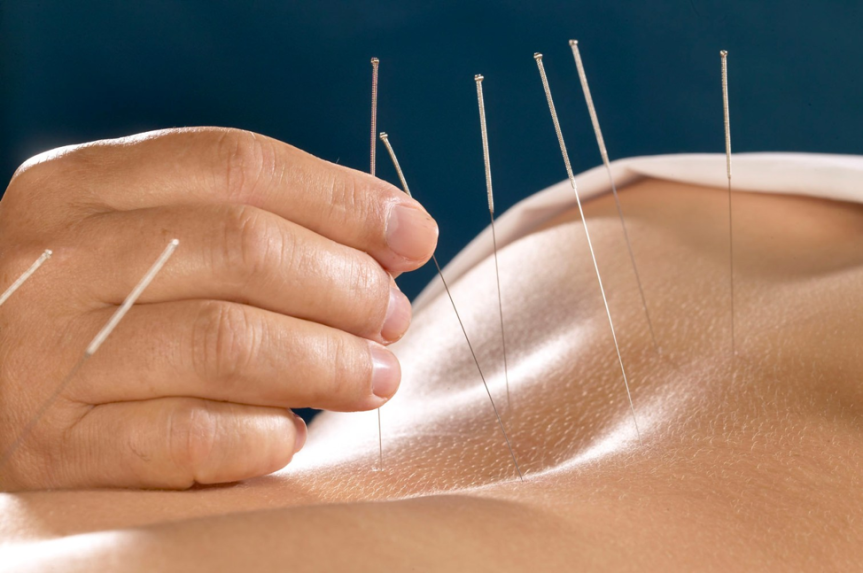
By Marcie Bower, Lic.Ac.
This post is copied from our older, original blog. Original post date 2/24/2015.
When people find out that I am an acupuncturist, one common question is “So, what are the most common things you treat?” I tend to rattle off some of the common ailments that bring people in for acupuncture – back pain, neck pain, headaches and migraines, sciatica, hormonal issues, infertility, ADD, anxiety, trouble sleeping. But then I also make sure to explain that acupuncture and Chinese Medicine is a complete medical system, and as such, we can use it to treat a whole myriad of symptoms, diseases, and health imbalances. So it is always worth calling an acupuncturist and finding out if they may be able to help you.
But in the meantime, here is my list of the most common reasons people come in for acupuncture.
They have pain.
This is the definitely a driving force for people seeking treatment – and luckily, it is a time that acupuncture shines. Acupuncture can be effective in treating musculoskeletal pain (back pain, neck pain, arthritis pain, overuse pain), internal pain (stomach pain from a variety of causes, menstrual pain, acid reflux pain), neurological pain (migraines, neuropathy pain), and emotional pain (depression, grief, loss.)
They are stressed.
Acupuncture is known to have a relaxation effect on the body, and can be useful in helping patients to feel less stressed. Perhaps more importantly, it can also help patients to deal with stress better, meaning that the same stressors may be present in their lives but they aren’t having the same deleterious effects on their bodies. Acupuncture also can treat common stress-related symptoms, such as insomnia, neck and shoulder tension, headaches, digestive upset, or anxiety.
Something in their body is moving too slow or too fast.
Acupuncture is homeostatic – meaning that it can help to bring physiological functions back into balance. It can slow down what is moving too fast, and speed up the physiological functions in the body that are sluggish. As such, it can have a regulating effect on hormones, metabolism, and blood pressure. Many herbs traditionally used in Chinese Herbal Medicine have been shown with modern research to be adaptogenic – meaning that their function in the body adapts to the body’s needs, much like acupuncture. This means that herbs and acupuncture can be effective in treating such varied issues as constipation, Irritable Bowel syndrome, high or low blood pressure, thyroid disorders, weight gain, and more.
Their hormones are out of whack.
Acupuncture and Chinese Herbs have been shown to effect the endocrine system and help deal with many symptoms of hormonal imbalance. Perhaps the most common hormonal ailment that we see in our clinic is women dealing with symptomatic menopause – hotflashes, nightsweats, etc. These symptoms often respond very well to treatment. Acupuncture can also be effective – alone or in conjunction with medication depending on the severity of the condition – in regulating thyroid and cortisol hormones, treating adrenal fatigue, and many other diagnosed problems with the endocrine system.
They can’t get pregnant.
We treat many patients struggling with infertility – both male and female factor infertility. When there is a diagnosis of “unexplained infertility” – ie, there is nothing wrong based on medical tests – acupuncture can often help a couple to conceive naturally. It has also been shown to increase sperm count, help women with PCOS get pregnant, and reduce the size of fibroids. Acupuncture has also been shown to increase success rates for women going through IVF. At our clinic, we successfully have helped many women get pregnant naturally or with Clomid, IUI, or IVF.
They aren’t sleeping or are sleeping too much.
Because acupuncture is homeostatic, it can help to regulate sleep cycles (based on our clinical experience, we find this is particularly true when combined with Chinese Herbal Medicine.) Acupuncture can help to treat insomnia, but can also boost energy levels during the day for patients who feel lethargic or the need to sleep all the time.
Their emotional balance is not where they want it to be.
Acupuncture works on the physical level but also on the mental, emotional, and spiritual levels. Many patients seek out treatment when they are dealing with anxiety, depression, PTSD, ADHD, or other such conditions. Other patients come in for treatment in a more acute state – looking for a way to help them deal with recent grief or loss, for instance. This is another time that acupuncture shines.

